Uzbekistan, a growing and radiant power between Europe and Asia
Derya Soysal, Professor of history and geography, environmental scientist and PhD researcher on hydrogen at the Université libre de Bruxelles
The historical interest of Central Asia lies in its location at the crossroads of East and West, nestled between empires and bordering areas of conflict and insecurity (such as Afghanistan, China's Xinjiang province, and Iran). While the region was largely ignored throughout the Cold War, its vitality and importance were quickly rediscovered (NATO.int) (Makarenko, T. 2010).
Uzbekistan, a former republic of the Soviet Union, had its independence in 1991. The first president was Islam Karimov but since 2016 Shavkat Mirzoyev comes to power.
The arrival of the new president to power brings Uzbekistan into a brand new era of economic prosperity, development, openness to the world, etc.
Uzbekistan is an agro-industrial country. 38% of the working population is employed in agriculture, which is mainly irrigated (cotton, fruit, early crops, rice, alfalfa, vines, etc.). The country also has significant mineral wealth (natural gas, uranium, copper, oil).
Since independence, President Karimov has chosen a strategy of gradual reform aimed at achieving energy and food self-sufficiency.
In the heart of Central Asia, Uzbekistan has the strongest economic growth in the region.Thirty years after the end of the Soviet Union, Uzbekistan has undertaken important reforms to open its economy to the global market, while protecting the most vulnerable households and strengthening the rule of law. Indeed, in recent years the country has carried out various reforms to break with the economic legacy of that bygone era by liberalizing and attracting foreign investors.
Uzbekistan's economy has weathered the Covid-19 crisis rather well, with Uzbekistan being one of the few countries not to have experienced a recession in 2020. The recovery is strong in 2021 and the growth rate of activity could be the strongest since 2016.
“Thanks to the reforms, the investment climate has improved significantly," says Ilhom Umrzakov, director of the Graduate School of Business and Entrepreneurship of Uzbekistan. "One of the main focuses of national policy is to ensure the rule of law, including the protection of investors' rights," he said. [euronews].
The new technology sector is one of those that is developing in the country. Incubators for start-ups and mentoring programs have been set up. A park dedicated to this field opened in 2019 in Tashkent. More and more companies are setting up there, attracted by tax exemption and premises suitable for innovation. [euronews].
According to Fournis, H. (2022) Uzbekistan wants to turn the page on the communist era by opening up its economy and promoting entrepreneurship and the private sector. Major reforms are being carried out, especially in the energy sector, in order to become a major country in Central Asia. He writes that "Uzbekistan, which aspires to become an economic tiger in Central Asia, seeks above all to be an attractive country for investors, for international organizations and for tourists, in order to keep its businesses running and to provide them with opportunities".
More than 55,000 commercial buildings have been built and the number of companies that have exceeded the symbolic turnover of one million dollars in one year has increased from 5,000 to 26,000. In addition, more than 200 Uzbek companies have surpassed the $100 million a year threshold. The state has recently introduced a targeted policy to support these different enterprises based on their size and annual revenue (Fournis, H. 2022).
The country also aims to get support from international financial institutions to increase the average entrepreneurial tissue throughout Uzbekistan.
Finally, lately the Uzbek government is working on opening up the country and trying to provide economic support to the regions that are in more difficulty than others, including subsidies to businesses, facilitating access to loans, providing guarantees, etc. (Fournis, H. 2022).
In summary, and according to coface.com, Uzbekistan has a more resilient economy than the rest of Central Asia (more diversified, less sensitive to external shocks). Not to mention the country's significant hydroelectric potential, its young population (50% under 30), its international financial support, its economic reforms (liberalization, privatization, diversification), its credit development (42% of GDP, 37% to the private sector) and public investments (electricity, transport, health).
The country is experiencing a high development of bilateral relations and its negotiations are becoming increasingly dynamic for preferential trade agreements with key partners (Turkey, Singapore, South Korea, etc.), the European Union (EU) and China.
On 27 and 28 October, the President of the European Council Charles Michel was in Uzbekistan. He first went to Tashkent, where he met with Uzbek President Shavkat Mirziyoyev to discuss bilateral relations and cooperation.
The two leaders issued a joint statement in which they welcomed the steps taken to strengthen interregional ties and cooperation and agreed to further deepen EU-Uzbekistan relations. They also welcomed the recent initialling of the Enhanced Partnership and Cooperation Agreement and expressed hope that it will be signed and ratified soon.
In Tashkent, President Michel also visited the New Uzbekistan Park and laid a wreath at the Independence Monument to mark the 30th anniversary of the country's independence.
President Michel also visited Samarkand, where he met with the mayor of Samarkand and visited the Gur Emir, the mausoleum of Timur.

Michel in Samarkand https://www.consilium.europa.eu/fr/european-council/president/news/2022/10/28/20221028-pec-visits-central-asia/
The parties paid particular attention to the need for joint efforts to accelerate the implementation of the EU Strategy for Central Asia and welcomed the holding of the EU-Central Asia conference on connectivity on 18 November 2022 in Samarkand, within the framework of the "Global Gateway" strategy for sustainable development. This will take place in Samarkand, Uzbekistan, and once again demonstrates the importance of Uzbekistan both regionally and globally.
The three key thematic roundtables will cover issues related to digitalization, transport and logistics, energy and water resources. EU seeks to help Central Asia boost investment...
The presidents discussed the importance of increasing port capacity, expanding ferry fleets and the rail fleet, harmonizing customs procedures, and introducing digital solutions for cargo handling and border crossing. The implementation of such projects is fully in line with the goals and objectives of the EU Global Gateway strategy.
The Uzbek side explained the importance of the Termez-Mazar-e Sharif-Kabul-Peshawar railway line construction project, which will improve connectivity.
Uzbekistan wants to become a key player in the connections between Central and South Asia. According to Polonskaya, G. (2021), Uzbekistan is a key player in developing the interconnection between Central and South Asia, regions with more than two billion people. In fact, this issue was at the heart of an international conference recently held in Tashkent and initiated by its host country, Uzbekistan.
Josep Borrell Fontelles, Vice-President of the European Commission wrote on twitter: "Central and South Asia are of growing strategic importance for the EU. For regional connectivity and security issues and especially when it comes to the situation in Afghanistan.

Uzbekistan, for its part, is working to develop regional cooperation and is carrying out infrastructure projects. One of them is the construction of a high-voltage power line that will serve Afghanistan.
During a meeting at the Uzbek Embassy in Brussels on November 3, 2022, Ismatilla Irgashev, special representative of the Uzbek president regarding Afghanistan, said that "Afghanistan would become a bridge between Central Asia and South Asia."
During the meeting at the Uzbek Embassy, it was said that Uzbek authorities are working to develop transport corridors. They have recently launched a new project: the construction of the Mazar-i-Sharif-Kabul-Peshawar railway line which will run from Termez in Uzbekistan - the link between this city and Mazar-i-Sharif is already operational - through Afghanistan to Pakistan.
An infrastructure project supported by the World Bank, Russia and the United States, among others, which will stimulate the Afghan economy, provide direct access to Pakistani seaports and reach India.
The section of the line between Mazar-i-Sharif and Kabul is estimated to cost $5 billion to build and will be constructed mainly through borrowing. In recent months, Uzbekistan, Afghanistan and Pakistan have made a joint appeal to international financial institutions to support the project. Depending on funding, construction could begin next September.
This rail line will offer new business opportunities as the time and cost of transporting goods will be significantly reduced. It is estimated that the new link will reduce the transport time between Central Asia and Pakistan to 6 days and lower costs by 30-35%. The railroad will provide direct access to Pakistan's seaports (Karachi, Qasim, Gwadar).
The main objective of Uzbek diplomacy is to transform itself from a landlocked country into a country linked to the wider Eurasia. Uzbekistan has decided to participate in the construction of the Trans-Afghan Railway. They want to become a logistics hub in Central Asia.
By investing billions in the construction of new railroads and roads, Uzbekistan aims to create efficient traffic corridors across Central Asia and, in the long term, to enable the creation of direct junctions with seaports that will facilitate access to international markets. Uzbekistan was already historically a key location on the Silk Road. The Trans-Afghan corridor project will provide access to other corridors that will connect East and South Asia to Europe via the Black Sea.
In conclusion, Uzbekistan, with its 35 million inhabitants, its ever-increasing resources and its geographical position, is a growing power. That is why the European Union is seeking to develop multidimensional cooperation between Uzbekistan and the EU. In the future, Uzbekistan will play a crucial role in the international arena, especially due to its natural resources, political strategy and strategic position between Europe and Asia.
REFERENCES:
Communiqué de presse conjoint de Chavkat Mirziyoïev, président de la République d'Ouzbékistan, et de Charles Michel, président du Conseil européenhttps://www.consilium.europa.eu/fr/press/press-releases/2022/10/28/joint-press-statement-by-shavkat-mirziyoyev-president-of-the-republic-of-uzbekistan-and-charles-michel-president-of-the-european-council/
Visite du président Michel en Asie centralehttps://www.consilium.europa.eu/fr/european-council/president/news/2022/10/28/20221028-pec-visits-central-asia/
Coface.com / Ouzbékistan https://m.coface.com/fr/Etudes-economiques-et-risque-pays/Ouzbekistan
Polonskaya, G. 2021. « Industrie et technologie : la stratégie de développement de l'Ouzbékistan » euronews.com https://fr.euronews.com/next/amp/2021/09/01/industrie-et-technologie-la-strategie-de-developpement-de-l-ouzbekistan
Fournis, H. 2022. « Ouzbékistan : le développement de l’entrepreneuriat comme clé du dynamisme de l’économie » revueconflits.com https://www.revueconflits.com/ouzbekistan-le-developpement-de-lentrepreneuriat-comme-cle-du-dynamisme-de-leconomie/
Makarenko, T. 2010. « Asie centrale: l’endroit où se télescopent puissance, politique et économie ». NATO.int https://www.nato.int/docu/review/fr/articles/2010/03/30/asie-centrale-lendroit-ou-se-telescopent-puissance-politique-et-economie/index.html .
Derya Soysal, Professor of history and geography, environmental scientist and PhD researcher on hydrogen at the Université libre de Bruxelles








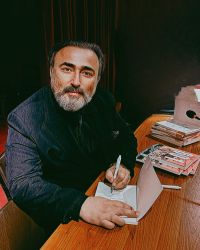

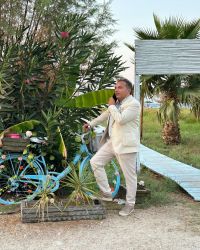
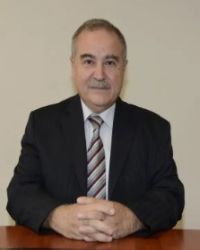
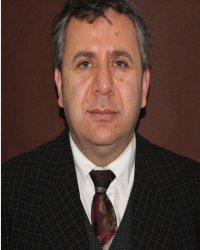
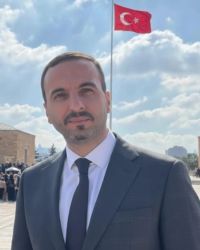

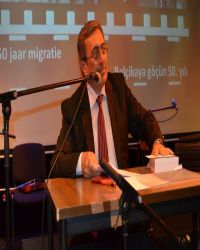
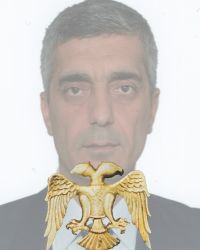
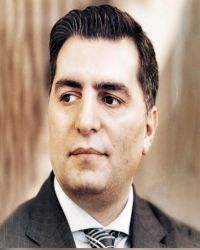








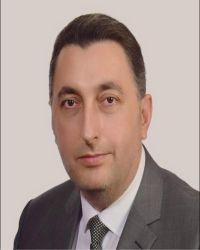
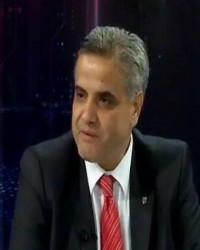
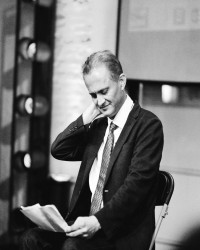
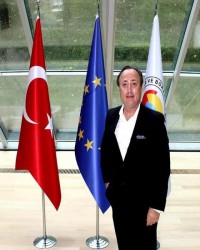

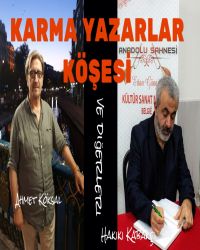

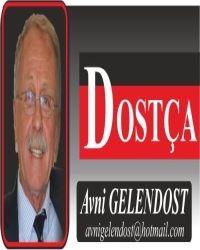
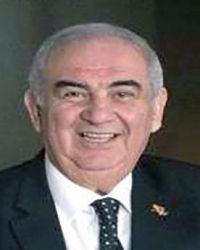
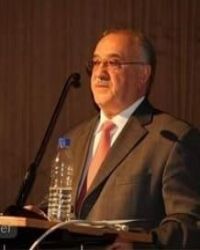
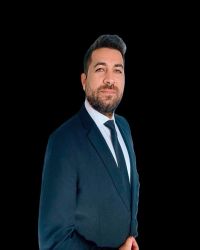
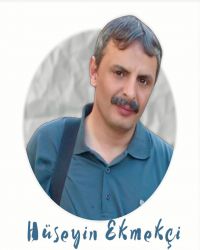



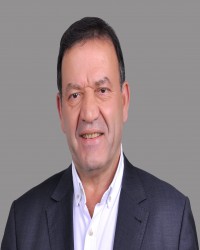


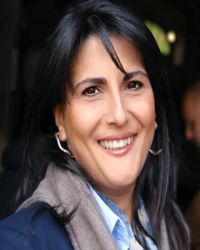


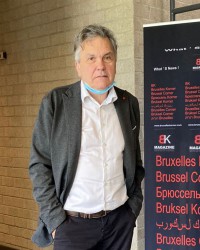
Yorum Yazın
Facebook Yorum